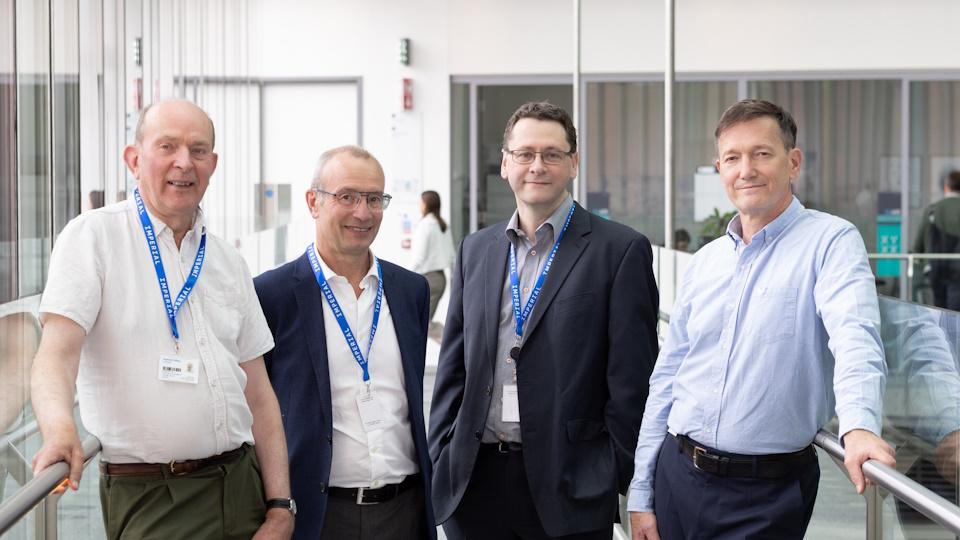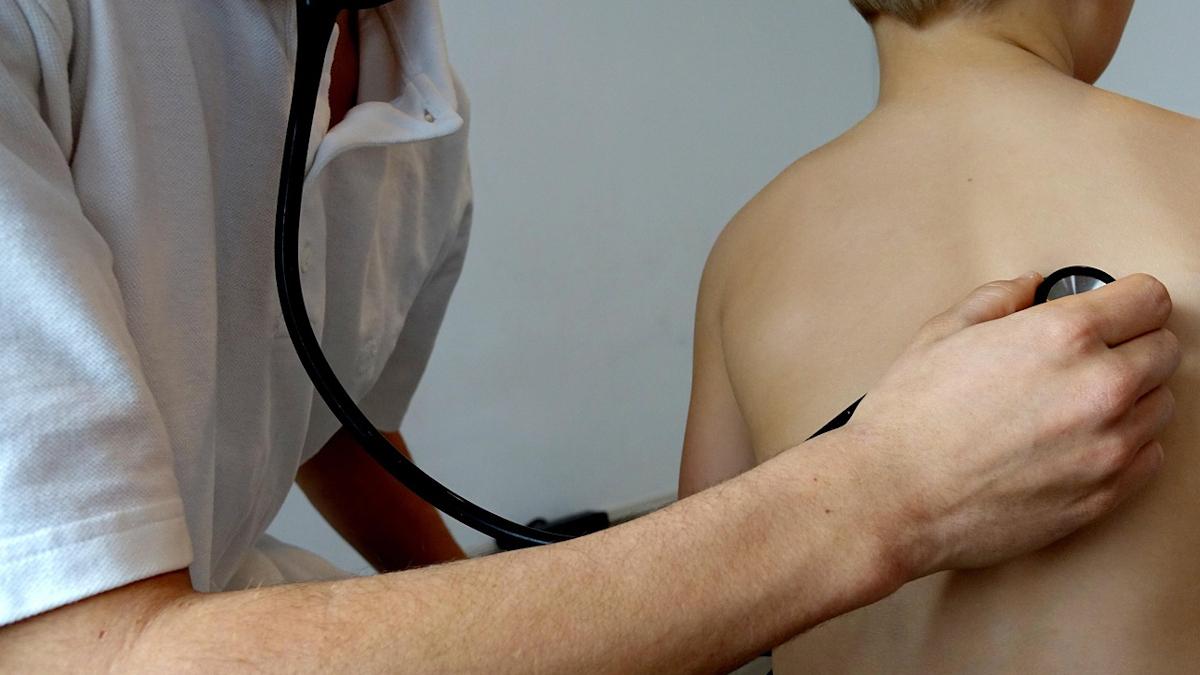Myricx raises £90m after pivot to ADCs for cancer

Myricx founders (l-r) Dr Andrew Bell, Dr Roberto Solari and Professor Ed Tate, with CEO Dr Robin Carr
UK biotech Myricx Bio has tapped into the red-hot interest among investors for companies working on antibody-drug conjugates (ADCs) for cancer, raising £90 million ($115 million) in a first-round co-led by Novo Nordisk parent Novo Holdings.
The spin-out from Imperial College London and the Francis Crick Institute has built its platform around a novel payload class – the cancer cell-killing component of an ADC that is delivered by the targeting antibody – that it says is highly differentiated from others being used today.
Myricx said the funding will be used to “build out” its n-myristoyltransferase inhibitor (NMTi) payload technology, as well as to move its pipeline of NMTi-based ADCs through to clinical proof-of-concept.
It will also help to establish a laboratory facility in London, with a pledge for significant growth and executive presence in the UK capital and expand its R&D and management teams, which include executives from GSK, ADC Therapeutics, Daiichi Sankyo, and Imperial.
Myricx has been co-founded by ex-Pfizer and Imperial researcher Dr Andrew Bell, Professor Ed Tate of Imperial and Francis Crick who is a key figure in NMT research, and cell biologist and biotech entrepreneur Dr Roberto Solari.
NMT is thought to play a key role in various cellular processes in cancer cells, including growth factor signalling and cancer cell metabolism and survival and, according to Myricx, its inhibitors have been shown to regress tumours in solid tumours that do not respond well to current payloads like tubulin binders, topoisomerase inhibitors, and DNA binders.
Myricx’s pipeline is led by candidates targeting B7-H3 and HER2, which are both well-validated cancer-associated antigens.
MSD and GSK have both recently licensed ADC candidates targeting B7-H3, an immunoregulatory protein that is overexpressed in lung, breast, ovarian, gastric, and brain cancer, as well as squamous cell carcinoma of the skin.
HER2, meanwhile, is targeted by ADCs, including AstraZeneca and Daiichi Sankyo’s Enhertu (trastuzumab deruxtecan), a blockbuster therapy used in HER2-positive solid tumours including breast, gastric, and lung cancers.
The round was co-led by Novo Holdings and Abingworth, backed by new investors British Patient Capital, Cancer Research Horizons, and Lilly, alongside founding investors Brandon Capital and Sofinnova Partners. Michael Bauer from Novo Holdings and Lucille Conroy from Abingworth will join Myricx’s board.
The biotech’s chief executive, Dr Robin Carr, who joined from GSK in 2019 and has spearheaded a pivot from a focus on NMTi as small-molecule drugs to their potential as ADC payloads, said the company “now has the resources to grow into a fully-fledged R&D company with our own laboratories, and an in-house R&D team with expanded management capabilities.”













